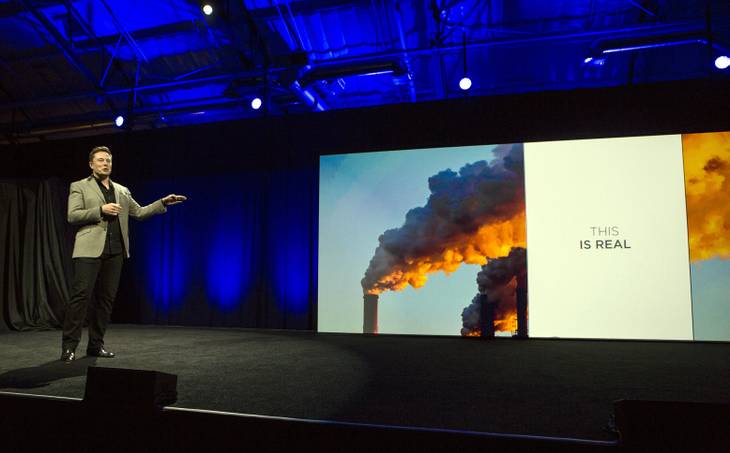An executive for Tesla Motors is calling on the Public Utilities Commission of Nevada to reconsider a decision that increased the fixed service fee solar customers pay NV Energy.
Tesla’s statement comes at a sensitive time, with the three-member regulatory commission scheduled on Friday to revisit a controversial decision to increase bills for solar customers.
In a letter filed with the commission Tuesday, the company’s vice president of business development said the higher fee was an impediment to developing an electricity grid that used on-site generation technologies, such as rooftop solar panels and home storage.
These technologies are also known as distributed energy resources.
“This change to a higher fixed charge provides no incentive for customers to alter their energy consumption behavior to support the grid and lower overall costs, yet new distributed energy technologies such as energy storage and electric vehicles, amongst others, are making it easier than ever for customers to be active grid participants responding to price signals built into their rates,” Diarmuid O’Connell wrote.
The electric car company is in the process of constructing a 5.5 million-square-foot battery factory in Northern Nevada, a project often touted as an economic development win for the state. Tesla broke ground on the battery plant in 2014. After a special session of the Nevada Legislature in September 2014, Tesla received more than $1.3 billion in tax incentives.
The factory already has started helping produce Powerwall batteries, which can store excess electricity produced at homes. The commission’s decision to increase the monthly fixed fee from $12.75 to $38.51 in 2020 could affect the energy storage market, O’Connell wrote.
Although Tesla is known for manufacturing electric vehicles, the mission of the company is to speed up the transition to sustainable energy consumption, another Tesla executive told state lawmakers in a presentation Monday. Tesla expects home storage to play a key role. Many foresee a future in which solar panels and home storage batteries regularly work in tandem.
“Energy storage, in particular, is an extremely versatile resource that can offer many benefits to Nevada’s electric grid including reducing peak demand, offsetting costly infrastructure investments, integrating renewables, supplying backup power, and increasing the reliability and resiliency of the grid,” O’Connell writes, adding that a high fixed fee leaves customers with “less incentive to invest in versatile energy storage devices.”
The commission approved increasing the fixed service charge in December as part of a move to raise bills for solar customers. Commissioners said the increase was necessary to eliminate an alleged cost shift from solar customers to other ratepayers. As part of that decision, the commission, which regulates NV Energy and approves rate changes, slashed the value of credits solar customers earn for generating excess electricity.
Tesla did not comment on that aspect of the commission’s ruling.
Solar companies argue the new rates change the economic calculus for customers looking to adopt rooftop panels. Several companies have pulled their sales teams from the state. SolarCity was one of the companies to pull operations from Nevada. Tesla CEO Elon Musk is also the chairman of SolarCity, although he is not active in the company’s daily operations.
O’Connell’s letter also asked state lawmakers and the commission to consider ways in which the state could “encourage customers to install distributed energy resources.”
“Tesla recommends that state policymakers and the (commission) collectively transition form narrowly focused proceedings to more holistic policies that contemplate how advanced distributed energy resources will play a role in Nevada’s energy future,” he wrote.
